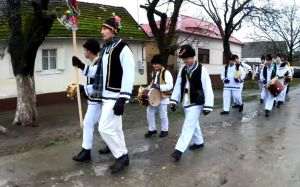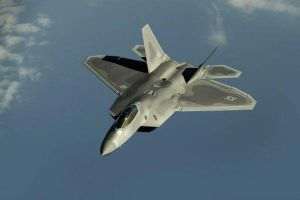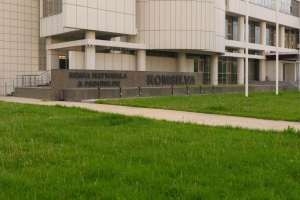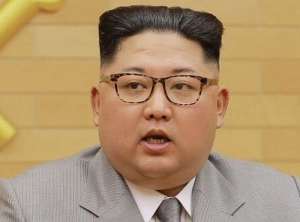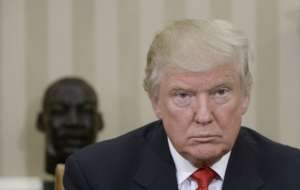Russian President Vladimir Putin is aware of several accidental or suspicious deaths of both oligarchs close to him and political opponents, according to media reports over the past seven years. Suppressing the lives of his inner circle and political opponents appears to have a long history spanning over 20 years. According to articles published over time by the Washington Post, New York Times, theatlantic.com website, Newsweek, Deutsche Welle, Euronews, The Telegraph and other international publications, the list of Russian citizens who died under suspicious circumstances is quite large, with President Putin being credited with nearly 40 murders on his orders over 20 years. In the online environment, there is not a complete list of all the people who would have been killed on the orders of Vladimir Putin, but separate lists, which helped us create a situation that has the year 2003 as its starting point.
According to the information from the cited sources, I noted that the first deaths favorable to Vladimir Putin took place in 2003. The first victim is Sergei Yushenkov, a former army colonel, who was at the mercy of the Moscow Times publication. Sergei Yushenkov registered his Liberal Russia movement as a political party in 2003, after which he was shot in front of his home in Moscow. At the time, Yushenkov was looking for evidence that would prove that Vladimir Putin was behind one of the bombings that took place in a residential area of Moscow in 1999.
Putin's second victim in 2003 was apparently journalist Yuri Shcekochikhin, who was also investigating the same attacks in 1999 for the Novaya Gazeta daily. In July 2003, the Russian journalist suddenly fell ill with a mysterious illness and died suddenly, a few days before he was due to leave for the United States. His medical documents were classified by the Russian authorities.
The next assassination also took place on a journalist, in 2006, who workealso for Novaya Gazeta. Anna Politkovskaya wrote and published a book - "Putin's Russia" - in which she accused the Kremlin leader of turning the country into a police state. The first assassination attempt on Anna Politkovskaya took place in 2004, when the journalist drank poisoned tea on board a plane operated by the Karat airline, but survived. Two years later, she was shot and killed in the elevator of the building where she lived. Five men were convicted of her murder, but the judge found it was a contract killing, with $150,000 of the fee paid by a person whose identity has never been revealed.
Another famous murder orchestrated by the Kremlin authorities also took place in 2006. It is about Alexander Litvinenko, a former KGB agent who died three weeks after drinking a cup of tea containing a highly toxic substance , Polonium-210. The assassination took place in London, and the British investigation revealed that Litvinenko was poisoned by Russian agents Andrei Lugovoi and Dmitri Kovtun, who were acting on orders that had been "probably approved" by Vladimir Putin. Litvinenko was assassinated because he was the most vocal critic of Vladimir Putin and claims that the 1999 bombings in Russia were orchestrated by the Russian president. Before he was killed, Litvinenko accused Putin of murdering Anna Politkovskaya.
• Lawyers and journalists, on the list of Vladimir Putin's favorite victims
The next suspicious deaths occurred in 2009. One of the victims is Boris Berezovsky, an oligarch who was close to former president Boris Yeltsin in the late 1990s, when he allegedly played a key role in Putin's rise to power, hoping to will be able to exercise influence alongside the new president of Russia. Because his hopes were in vain, Berezovsky went to Britain, with the desire to remove Vladimir Putin from the presidency and accused him of the assassination of Alexander Litvinenko. In 2009, Berezovsky was found dead in a locked bathroom of his home in the United Kingdom with a noose around his neck.
In the same year, Stanislav Markelov and Anastasia Baburova died under suspicious circumstances. Markelov, a human rights lawyer known for representing Chechen civilians in human rights cases and most notably representing Anna Politkovskaya, was shot by a masked man near the Kremlin. Baburova, also a journalist at Novaya Gazeta like Anna Politkovskaya, was fatally shot while trying to help Markelov.
The next high-profile death that year was that of lawyer Sergei Magnitsky, who died in police custody in November 2009 after being brutally beaten and then denied medical care. Magnitsky was working for businessman William Browder and was investigating a case of massive tax fraud. Sergei Magnitsky was arrested after uncovering evidence that suggested Kremlin officials were behind the fraud. A victim whose death preceded Mr. Magnitsky's, Valery Kurochkin, a potential witness whose name appeared on documents related to the fraud, fled Russia to Ukraine but died there of liver failure at the age of 43. years. The other witness, Oktai Gasanov, died of heart failure at the age of 53.
After Magnitsky's death, another witness died after falling from the balcony. Another person involved in the case, banker Alexander Perepilichny, arrived in London in 2009 and handed over the wire transfer documents to Swiss investigators. In 2012, however, at the age of 44 and in apparently excellent health, he suffered a heart attack while jogging. It was only in 2015 that a botanist was able to identify the presumptive cause of Perepilichny's death: his stomach contained traces of gelsemium, a rare, poisonous plant grown in the Himalayas and known to have been used in Chinese assassinations.
In July 2009, journalist Natalya Estemirova, who was investigating kidnappings and murders committed by the Russian army in Chechnya, was shot dead. Estemirova was abducted from outside the house, shot several times - including a direct shot to the head - and dumped in the nearby woods. No one has been convicted of her murder.
• Boris Nemtsov, Putin's rival
In 2015, two assassinations took place. One, which took place in the USA, went unnoticed at first glance, even though it was about a former close associate of the Kremlin leader. According to the first information, Mikhail Y. Lesin, 57, died in a hotel room in Washington, due to a heart attack. A year after his death, a US medical examiner determined that he was killed by blunt force trauma and that this was the cause of death, not a heart attack.
In the same year, 2015, he was shot, in Russia Boris Nemtsov, who was deputy prime minister and was seen as the future president of Russia, but the one who succeeded Boris Yeltsin was Vladimir Putin. Nemtsov has criticized Putin for rolling back civil liberties, organized several protests and compiled reports on Kremlin corruption. In February 2015, just hours after urging the public to join a march against Russia's military involvement in Ukraine, Nemtsov was shot four times in the back. Putin took "personal control" of the investigation into Nemtsov's murder, but the murderer was not found.
The former deputy director of Russian national airline Aeroflot, Nikolai Glushkov, who said about a quarter of the company's employees were officers of the country's intelligence services, died in 2018 in London. He was found hanged in the building where he lives. Glushkov was a critic of Kremlin power and close to Boris Berezovsky. The results of an investigation completed in April 2021 revealed that Glushkov was murdered, his death being made to look like a suicide by hanging.
• Thrown from the window of the Russian embassy in Berlin
In October 2021, a Russian diplomat was found dead after falling from a window of the Russian embassy in Berlin, according to Der Spiegel daily. The man was second secretary at the embassy, but German intelligence sources told the newspaper they suspected he was an undercover FSB officer. Investigative service Bellingcat, which used open-source data, identified the victim as Kirill Zhalo, the son of General Alexey Zhalo, deputy director of the FSB's II Service, responsible for managing domestic political threats to the Kremlin.
In December of the same year, the founder of the nationalist blog Sputnik and Pogrom, Yegor Prosvirnin died after falling from a window of a Moscow apartment building. Prosvirnin initially supported Russia's annexation of Crimea in 2014, but later became a vocal critic of Putin, predicting a civil war in Russia and the country's collapse.
On August 14, 2021, Dan Rapoport, a Latvian-American investment banker and outspoken critic of Putin who had just left Ukraine after the Russian invasion, was found dead outside a luxury apartment building in Washington DC. Rapoport grew rich while in Moscow before falling out of favor with the Kremlin, largely due to his support for opposition leader Alexei Navalny. In 2017, Rapoport's business partner, Sergei Tkachenko, died after being thrown from his apartment window in Moscow.
Defenestration seems to have become a practice of those who serve Vladimir Putin, with the cases of three doctors who died after being thrown from a hospital window after protesting in the spring of 2020 against working conditions during the first period of the pandemic. Covid 19.
In December 2020, a leading Russian scientist developing a new vaccine against Covid-19, Alexander Kagansky, was found dead after allegedly jumping from the balcony of his home in St. Petersburg. According to Russian publications, police claimed that Kagansky stabbed himself and then jumped from the balcony.
• The invasion of Ukraine, continued by Putin with the removal of several oligarchs from around him
The invasion of Ukraine was an opportunity for the Kremlin leader to get rid of both the most inconvenient political opponents and the oligarchs around him unhappy with the sanctions they were subjected to following the opening of the conflict in the neighboring country.
Thus, Pavel Antov, a Russian politician who criticized the invasion of Ukraine, died after falling from the window of the Sai International Hotel while in India on December 25, 2022. dead after falling from a window in India on December 25, 2022.
Ravil Maganov, 67, chairman of Russian oil giant Lukoil, the country's second-largest oil producer, was found dead on September 1, 2022, after falling from the window of a Central Clinical Hospital in Moscow.
Leonid Shulman, head of transport at Gazprom Invest, was found dead on January 30, 2022, from an apparent suicide in the bathroom, less than a month before the invasion of Ukraine.
The death of the next Russian oligarch, Alexander Tyulyakov, deputy general director of Gazprom, was discovered on February 25, 2022, the day after the start of the war in Ukraine.
A few days later, on February 28, 2022, Ukrainian-born Russian tycoon Mikhail Watford was found dead at his home in the UK.
In the same period, immediately after the invasion of Ukraine, oligarchs Sergei Protosenya, Vladislav Avayev (former Kremlin official and vice-president of Gazprombank), Vasily Melnikov and Alexander Subbotin also died suspiciously.
Serghei Protosenya, 55, head of the Novatek company, was found hanged in the building where he lived in Lloret de Mar, Spain, next to the bodies of his wife and daughter, who died by stabbing. What was initially classified by the police as a double homicide followed by Protosenya's suicide was later categorically denied by his son. Friends of the oligarch said he was the third victim of a "staged suicide" and that he would have been incapable of killing his family.
Just a day before the death of Protosenya and his family, the body of Russian oligarch Vladislav Avayev, vice president of Gazprom and a former adviser to Putin, was found in his Moscow apartment, along with the bodies of his wife and 13-year-old daughter . It was his 26-year-old daughter Anastasia who discovered the crime scene. A gun was found in the oligarch's hand, and Russian authorities said he shot his wife and youngest daughter before committing suicide.
Andrei Krukovsky, 37, the manager of a Sochi ski resort owned by Gazprom, died after allegedly falling off a cliff while hiking.
Businessman Yuri Voronov, 61, general director of transport and logistics company Astra-Shipping, a subcontractor of Gazprom, was found shot in the head in the pool of his home in the luxury Vyborgsky district of St. Petersburg.
Another oligarch, Ivan Pechorin, a top manager at the Far Eastern and Arctic Development Corporation, was found dead on September 12, 2022 in Vladivostok after allegedly falling from his luxury yacht and drowning near Cape Ignatyev in the Sea of Japan two days before. Pechorin was allegedly tasked with modernizing Russia's aviation industry and worked directly under Putin.
Another aviation expert, Anatoly Gheranshchenko, also died in 2022 after falling down the stairs, according to a statement issued by the Moscow Aviation Institute, of which Gheranshchenko was head.
On September 14, 2022, Vladimir Sungorkin, journalist, editor-in-chief of Komsomolskaya Pravda, died, who allegedly suffered a stroke while on his way to a restaurant for lunch.
On September 28, 2022, Pavel Pchelnikov, director of Digital Logistics at a subsidiary of Russian Railways, died after allegedly shooting himself on the balcony of his home in Moscow.
Grigori Kocenov, creative director of Agima, an IT company, died on December 7, 2022, after falling from a balcony while officials of the Investigative Committee were conducting a search at his home.
Dmitri Zelenov, the co-founder of Donstroy, a construction company, died two days later on the French Riviera after falling over a railing and hitting his head.
• High-ranking officials, victims of the Putin regime
The series of suspicious deaths continued in 2023. Marina Yankina, head of the Finance Department of the Western Military District of the Ministry of Defense, died on February 16 after allegedly jumping out of a window from the 16th floor of a building located in St. Petersburg.
Dmitri Pavochka, former manager of Roscosmos, Sukhoi, Lukoil, Bank Menatep and Russdragmet, burned to death after allegedly falling asleep with a lit cigarette in an apartment on the 17th floor of a building on Leningradsky Boulevard, Moscow.
Vladimir Makarov, a former police general tasked with cracking down on anti-war protesters, committed suicide on February 13, 2023, after being fired by President Vladimir Putin.
Viatcheslav Rovneiko, co-founder of Urals Energy, co-owner of the Belgian oil company Nafta (B) NV, director of the Interregional Fuel Union, former KGB spy, died on February 22, 2023, after being found unconscious in his own home.
Igor Shkurko, deputy director of Yakutskenergo, committed suicide in the Yakutsk pre-trial detention cell on April 4, 2023.
Piotr Kucherenko, State Secretary and Deputy Minister of Science and Higher Education of the Russian Federation, died on May 20, 2023, after allegedly falling ill on board a flight from Cuba to Russia.
Artyom Bartenev, federal judge of the Kirovsky District Court, died after allegedly jumping from the window of his apartment on the 12th floor of a building in Kazan.
Kristina Baikova, vice president of Loko-Bank, head of department for corporate clients, died on June 24, 2023, after allegedly jumping from her apartment located on the 11th floor of the building on Khodynsky Boulevard, Moscow.
Andrei Fomin, prosecutor, died after drowning in the Volga River on July 1, 2023.
Alexander Nikolaev, former diplomat, employee of Rosatom since 2016, consul general of Russia in Crimea, died on July 1, 2023, after being beaten in front of his house in the Tver region.
Anton Cherepennikov, head of Citadel, a company specializing in digital interception equipment and telecommunications monitoring technology, which was sanctioned by the US in February 2023, died on July 22 in his office.
Gennady Lopyrev, a former lieutenant general in the FSO and supervisor of various construction projects, including Putin's palace in Gelendzhik, near Sochi, died of leukemia in prison two days after his diagnosis. Lopyrev was imprisoned for bribery, a charge he denied.
After all, that's what the Kremlin does. Let's remember that in 2020, Russian agents poisoned - but failed to kill - Alexei Navalny, Putin's opponent. Navalny is now held in a Moscow prison and was convicted in several "fabricated" cases on the order of the Kremlin leader. Another controversial episode occurred on April 10, 2010, when a Tupolev Tu-154 aircraft of the 36th Special Aviation Regiment of the Polish Special Aviation Regiment crashed near Smolensk Airport, Russia. All 88 passengers, including the President of Poland, Lech Kaczynski, and members of the government, as well as 8 crew members lost their lives. The Polish presidential plane was on its way to Katyn, near Smolensk, where they were to commemorate the massacre committed by Soviet troops during the Second World War. Russian air traffic controllers initially advised the Polish pilot not to land at Smolensk, then changed their minds and disaster struck. The wreckage of the Tupolev 154M, which crashed in Smolensk, has not yet been returned to Poland, which raises suspicions about Russia, Deutsche Welle journalists wrote in 2020.
As can be seen, Vladimir Putin is not only a war criminal, as stated by the International Criminal Court in The Hague, which also issued an international arrest warrant for the Russian president, but also a peacetime criminal. In light of the above, it can be said that his physical absence from the BRICS summit was not only out of fear of being arrested by the South African police, but out of a desire to prepare his revenge against Prigozhin. Unfortunately, the outlook is not good and the serial killer at the top of the Kremlin is still left to kill.







